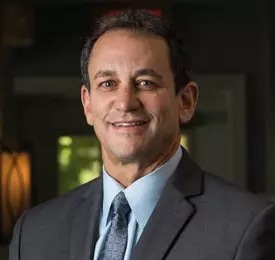Article Overview
Rethink Your Dental Practice Transition Strategy

For many years, the path to build wealth and transition your dental practice looked the same for everyone:
- Attend dental school
- Begin clinical work
- Buy a practice of your own
- Sell your practice
- Retire and play golf or travel
This approach worked for a long time because dentistry remained relatively unchanged for decades.
Buying or selling a dental practice has changed quite dramatically thanks to dental consolidation. Which means there’s no longer such a thing as a one size fits all exit plan. Your transition is a personal matter that must incorporate your unique needs and goals. Let’s explore some of the important factors to consider when planning your transition.

Factors to Consider When Planning Your Dental Practice Transition
When most people think about their transition, the first and most important consideration in their minds is money. While it’s true that ensuring you have enough money is an incredibly important concern—after all, how can you enjoy your next phase if you’re struggling to fund it?—there are equally important elements to bear in mind.
A dental practice transition used to be a reactive event that happened at the end of your career without much consideration for lifestyle goals or money beyond having enough to live out the rest of your days.
In today’s economic climate, waiting that long to transition your practice means you’re leaving a considerable amount of money on the table. The best time to transition in order to gain the most benefits is mid-career when you’ve hit a plateau.
That means the time when you’ve noticed your growth has slowed to 3-10% per year. This is the perfect time to have a transition aka, a liquidity event, in order to:
- Eliminate any remaining student loan debt
- Fill your retirement account with cash
- Create multiple streams of passive income
- Partner with others to explore other ventures (if you desire!)
In other words, a practice transition isn’t retirement but an opportunity to maximize the value of one of your greatest assets—your practice.
A successful transition takes time, typically up to 5 years. Therefore, there are several career and lifestyle factors that should come into play when you’re putting your unique transition strategy together:
Autonomy – What sort of control would you like to have over your schedule and the procedures you’ll do?
Loved ones – How will you involve your family into your plans? What changes will you make to satisfy their needs?
Succession – Do you have at least one skilled, trusted Associate who has the potential to work at least 10 more years ready and willing to continue the work you began in your practice? What sort of incentives will you provide to keep them around?
Ideal Buyer – Who will you sell your dental practice to? You could go with a private buyer if you’re able to find one with enough cash to cover the full value of your practice. But in order to get the most out of the sale, including the fulfillment of your transition strategy, your best option is a DSO (we’ll explore this more later on in this article).
Tax Burden – How will you minimize the taxes you owe at closing so you walk away with the most money?
Wealth Creation – How will you redeploy your earnings from the sale to create multiple streams of (passive) income?
This is just the tip of the iceberg. There are other considerations that are personal to you that are just as important. Write them all down, no matter how inconsequential they may seem. By doing this, you’ll have a clearer idea of what sort of Transition Partner you need to make your exit from clinical practice satisfying and successful.

Choosing the Right Transition Partner
In order to have your best shot at the transition of your dreams, your best option is to sell to a DSO. But not all DSOs are created equal. Let’s take a brief look at how DSOs came to dominate dentistry and how to partner with the right one in order to secure your future.
In the 1990s Corporate DSOs began experimenting with conglomerating the dental industry, buying dental practices for sale. Many of them failed in these early days due to the lack of alignment between the investors and the doctors. The reason for this is the Corporate DSOs by and large cut out the culture of the practices that joined them by failing to keep their best interests at heart. Oftentimes this is still the case with corporate DSOs today:
- Deals are structured to give dentists the smallest part of the pie, preventing them from claiming the wealth they deserve
- Dentists are locked into agreements that require them to keep working for a set number of years, potentially beyond what they are physically capable of doing
- Dentists have little to no say over decisions regarding their staff, their workload, their suppliers, or anything else in their practices
- Dentists essentially become employees for the duration of their agreement, without the freedom to explore other ventures

Conditions like these aren’t designed to help you thrive. One of the greatest takeaways we can get from Corporate DSOs is that dentists must be the ones to ensure dentistry remains an industry where people can have satisfying careers that are financially rewarding. The best way to do that when selling a dental practice is to join Autonomous, Dentist-owned DSOs.
Over the past 7 years, Autonomous DSOs have been outpacing Corporate DSOs because they’re giving hardworking doctors the freedom, independence, and autonomy they deserve.
In short, they’re behaving more like invisible financial partners rather than out of touch task masters. That means dentists who join these DSOs are able to do what they do best with all the benefits that come with an economy of scale—HR support, better supply discounts, better insurance reimbursement rates, and so much more. These are the elements that make the difference between partnership versus an acquisition.
If it’s important to you to get your needs met during your transition, we strongly encourage you to explore the possibility of partnership with an Autonomous DSO.
And if you want to give yourself the best chance of attracting the attention of the best Autonomous DSOs, we can help you get started.

How to Plan Your Transition with Confidence
Dental practice transitions aren’t one size fits all, so you need to consider your individual goals and dreams for your career and lifestyle alongside your financial concerns in order to make a plan that’s right for you. It’s much easier to create a transition strategy that you’re excited about when you have a clear idea of what your targets are.
Your transition is a once in a lifetime milestone that needs to be handled with care. If you need help envisioning the best next steps for your future, we’re here for you.
We’ve created the Transition Readiness Report to help dentists plan their transitions with confidence. It’s a free report and consultation that will help you understand the financial health of your practice so that you can optimize it and get the most out of the sale, when you’re ready. One of our Transition Experts will explain the factors that impact your practice valuation and the steps you can take to secure your dream transition.
If you’re ready to get your transition plan in order, let us help you get started. Apply now for your complimentary Transition Readiness Report.
Join us Live at the BTDSO Summit
For a limited time, receive a discount on your BTDSO Summit registration by filling out your information below.






